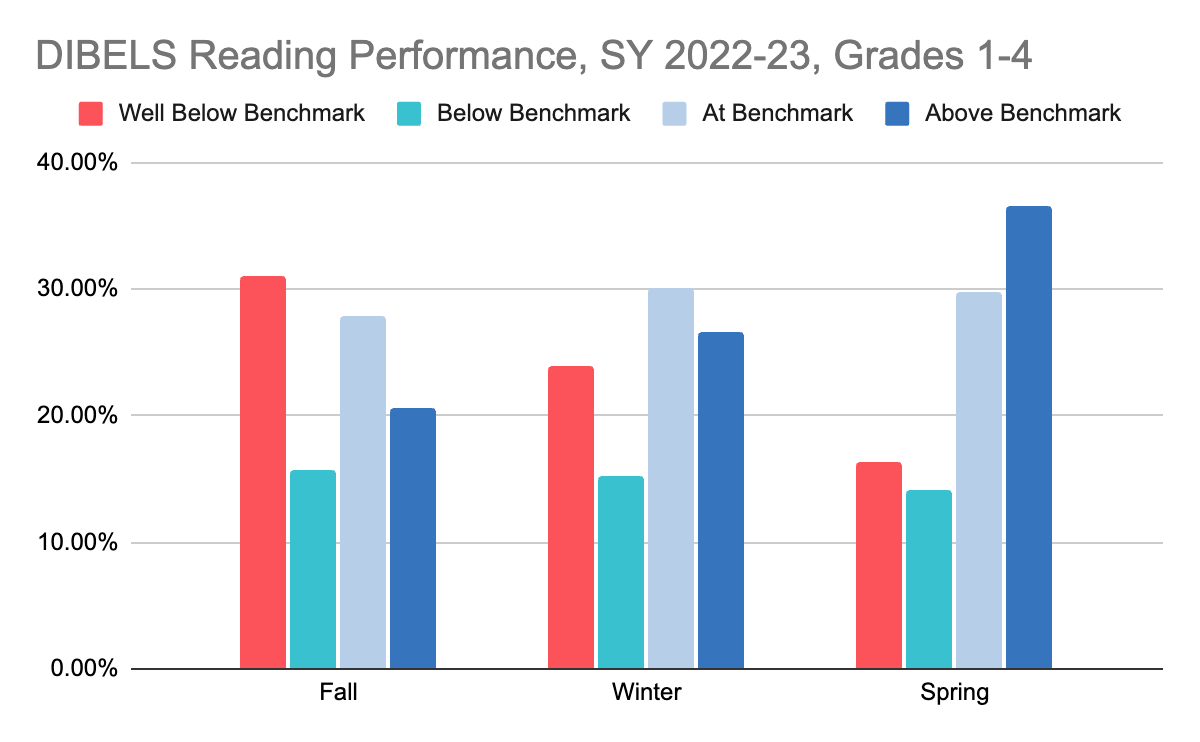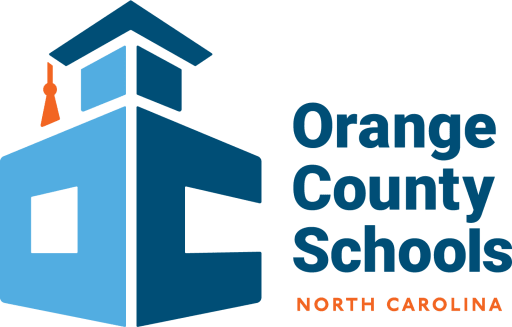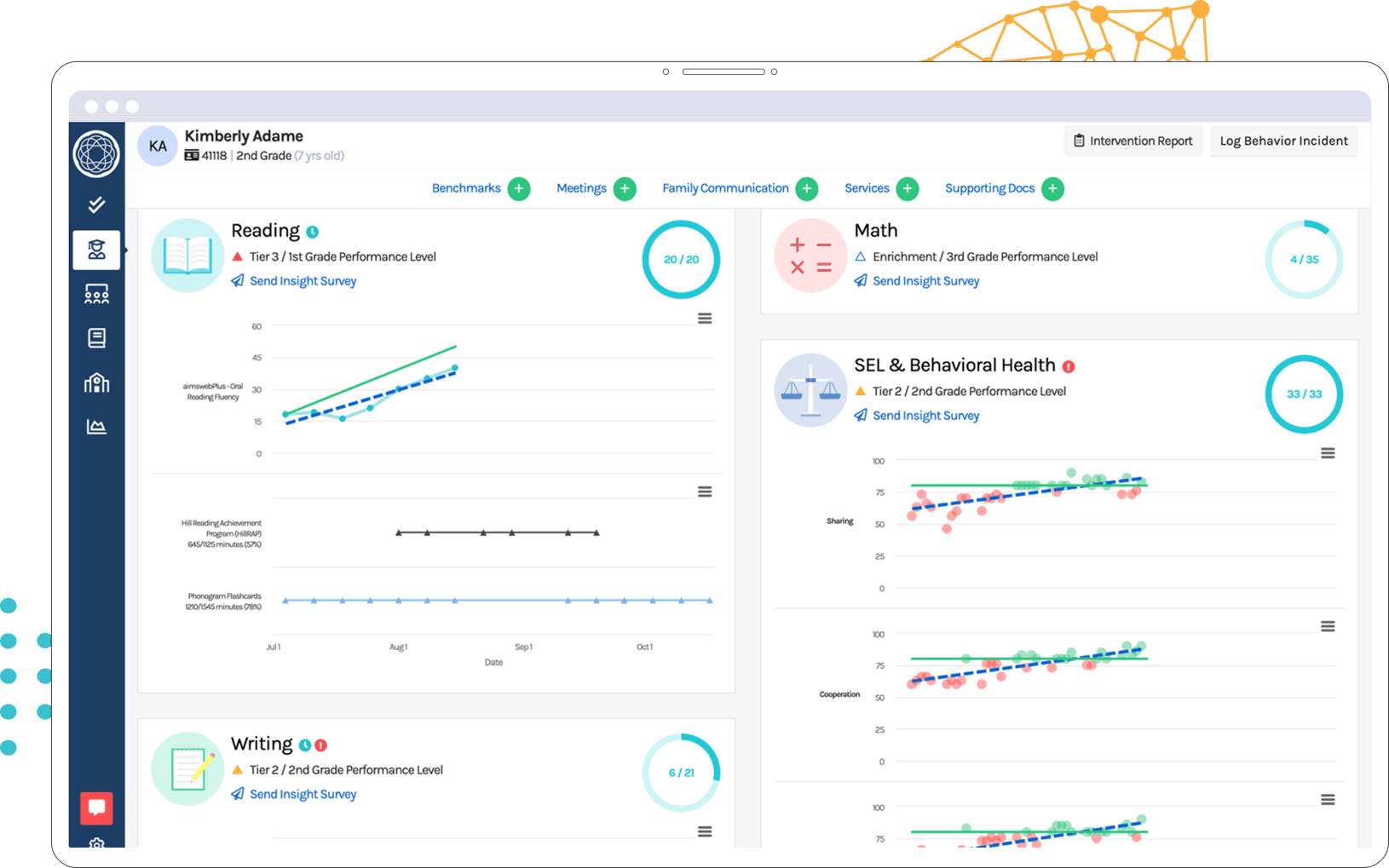Our district, like many, has been negatively impacted by staffing shortages this year. Open positions, long-term subs, etc., impact students, families, and other teachers/central services staff who ‘cover’ or step in to make sure kids are getting what they need.
Emily Myers
Director of MTSS, Orange County Schools
Similar to many schools across the country, in Orange County, North Carolina, this past year, not only were the adults facing challenges, but the students were also adjusting to life after a pandemic with disrupted and missing critical learning. However, despite their challenges, Orange County Schools have made tremendous progress, and Emily Myers, Director of MTSS for the district, attributes the success to the educators. “Our educators bring a ‘we are in this together’ attitude to work — that’s evident in the way they have rallied to push our district through some of the staffing challenges we’ve experienced this year. They are committed to our community and families and are doing amazing things in their classrooms each day.”
THE CHALLENGES:
Streamlining Data Access, Fostering Buy-In, and Navigating Complexities
Emily shared that they had a missing piece with their MTSS implementation. They had all the data but not a great way to compile it and provide everyone access. Branching Minds was a great fit for what they needed.
“The Professional Development was really exciting from my standpoint, so I had a partner in leading some of this work,” says Emily. Having a partner was essential as she knew that a big challenge would be selling the staff on the benefits of the work involved.
Coming out of the pandemic, implementing a new initiative was a big lift for districts. Teachers had just spent the last few years adjusting to many changes and implementing many new things. Orange County Schools needed something that would make the job of the educators easier, not harder.
THE WORK:
Building Buy-In and Cultivating Sustainability in MTSS Implementation
Alongside their Branching Minds Professional Learning Consultant, Emily started with her principals, establishing why and what MTSS and Branching Minds could bring to their schools. From there, they slowly rolled into MTSS teams at the school level and then used a train-the-trainer model to lead into the schools. “I think that has been incredibly beneficial, principals buying in. I underestimated the power of an administrator in a building supporting an initiative.”
With all of the challenges that Orange County Schools faced, the implementation needed to be sustainable for the long haul and become part of the school culture to be effective.
THE RESULT:
Data-Driven Transformation
As a result of their hard-working teams and an MTSS platform to help them, Orange County Elementary Schools could see all the data and work together with literacy coaches to target interventions, achieving dramatic improvement in performance in reading. As evidenced by their DIBELS data, the number of students scoring above benchmark significantly increased between Fall and Spring, while the number of students scoring well below benchmark dropped significantly.

The infrastructure work paid off. “Elementary schools are seeing great growth because they are using the data. I think they were always using it, but it was so hard to find. It was hard to compare one student's progress to a group. It was hard to see all students across the district in Tier 3 interventions. How are they growing and changing? And what does that mean for us in terms of taking the next steps? But we're able to really use the data now and the reporting that comes out of that.”
Elementary schools are seeing great growth because they are using the data.
Emily Myers
Director of MTSS, Orange County Schools
The Elementary PLC teams used the Cohort Assessment Report to help students on grade level continue to grow. Seeing that the students were on grade level but also showing no growth prompted the team to focus on growth for all students, not just the ones with the high risk. Branching Minds reports helped them visualize their data and act on it.
The middle grades also found visibility into the data to be transformative. Using screening data, middle school teams made plans to intervene early. “Branching Minds made it clear for our science and social studies teams just how deeply reading and math risk was impacting their classrooms, seeing that data changed the conversation.”
Branching Minds made it clear for our science and social studies teams just how deeply reading and math risk was impacting their classrooms, seeing that data changed the conversation.
Emily Myers
Director of MTSS, Orange County Schools
As the High School has begun implementing MTSS, they have seen what the K-8 levels have been doing and have asked for Branching Minds to help them create plans and track student progress, which Emily says is a big step forward in their work. “I’m most proud of the fact that our successes in K-8 MTSS implementation from last year really built momentum for high school implementation this year - HS are notoriously tough crowds! All three high schools have been ALL IN this year - asking great questions, doing the hard work, and disproving the commonly held misconception that MTSS doesn’t ‘work’ at high school."

















